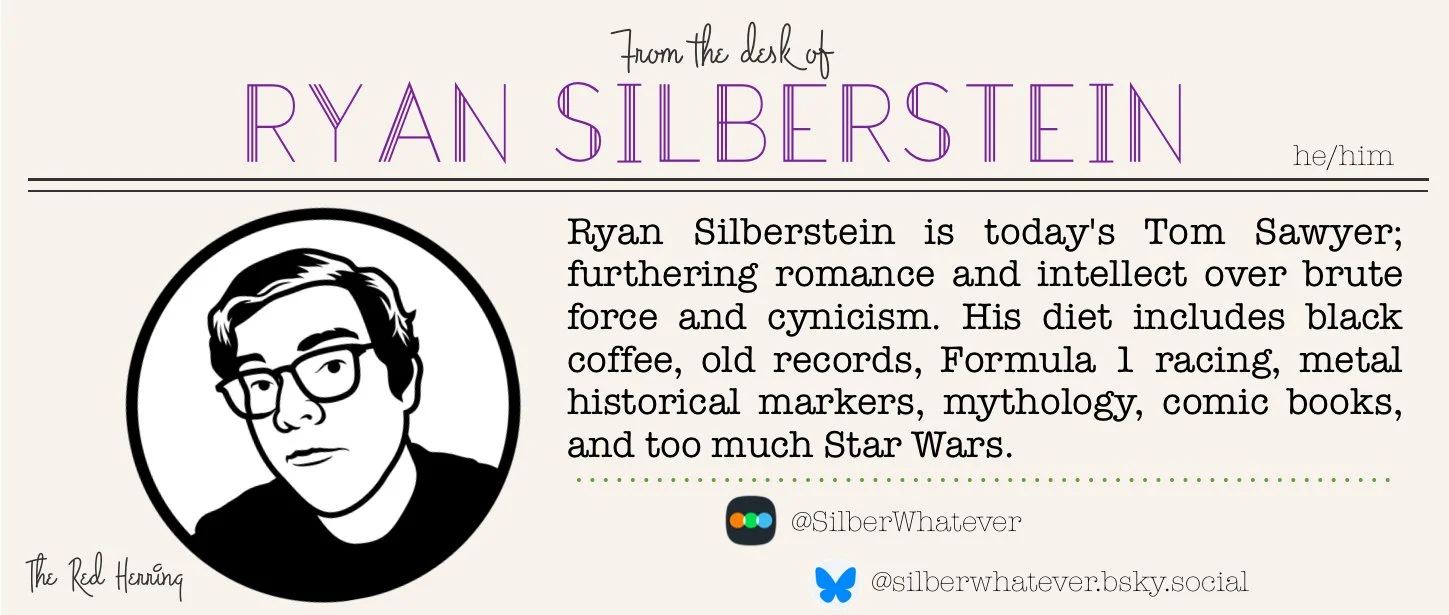THE ORDER lacks the punch needed for an exciting white supremacist takedown
The Order
Directed by Justin Kurzel
Written by Zach Baylin
Starring Jude Law, Nicholas Holt, Tye Sheridan, Jurnee Smollett
Unrated
Runtime: 1 hour, 54 minutes
In theaters December 6
by Ryan Silberstein, Managing Editor, Red Herring
While it was obscured by the War on Terror (which specially meant non-U.S. actors who had ties to Islamic terror organizations) for much of my teenagerhood and early adulthood, the vast majority of terrorism in the United States over the last 100 years was perpetrated by those espousing white supremacist points of view. These include the Tulsa massacre (1921), 16th Street Baptist Church bombing (1963), the Oklahoma City Bombing (1995), the 1996 Summer Olympics bombing in Atlanta, the Wisconsin Sikh temple shooting (2012), and the Pittsburgh synagogue shooting (2018). The blending of historical white supremacist narratives going back to race science in the 19th century and admiration of Naziism has created Christofascism, a potent ideology that simply refuses to die. The Order, the subject of Justin Kurzel’s new film, was one such group active in the mid-1980s in Washington State and Idaho. With a new wave of Neo-Nazism openly taking to American streets, looking at the recent history of the movement feels particularly poignant.
In 1983, FBI Agent Terry Husk (Jude Law) arrives in Idaho and begins to investigate a pattern of local bank robberies and counterfeiting that he believes is not connected to traditional organized crime but the work of a radical white supremacist group. Aiding Husk in his investigation are Jamie (Tye Sheridan), a local cop, and Joanne (Jurnee Smollett), another local FBI agent. The leader of the group is Bob Matthews (Nicholas Holt), who has founded and organized the group in order to violently overthrow the United States government, his ideologies based around the 1978 novel The Turner Diaries by William Luther Pierce.
Where The Order shines is in its performances. Law makes for a satisfying FBI protagonist, channeling the early ‘80s cop character through his mannerisms, attitude, and mustache. He’s a man who has given up his whole personal life because he is so dedicated to his job, and, while that is a movie cop stereotype, Law brings it to life here with a lot of small performance touches in his posture and the way he communicates with those in the community he is investigating. On the other side, Matthews is drawn as a dark foil to the FBI agent, similarly putting his belief in his ideology above everything else in his life. While the motives for Matthews’ beliefs are not explored (which is probably for the best), there is a drive that both men share when it comes to what they feel they must do. While the film does not go down the road to explore the link between white supremacy and those who work in law enforcement, the foil does add some tension to the story. It also leads to one of the best scenes in the film, where Husk is watching a deer through his rifle scope while Matthews, in turn, watches Husk through his own.
While it is objectively satisfying to see white supremacists taken down, The Order does not offer much else in terms of substance. While the overall look of the film, editing, and shot choices are excellent, it only offers a few moments of tension throughout. There is not much of a mystery for Jude Law to untangle, as the film sets him on a direct line to Matthews and his group. Watching the events unfold feels almost rote by the time we reach the climax of the story. Credit is due to the filmmakers for not offering sympathy for the members of The Order, but there’s just not enough here to make this a recommendation beyond the thriller elements.
Despite its sturdy construction, The Order simply lacks both the depth and the entertainment punch of Spike Lee’s comparable BlacKkKlansman (2018). Where The Order keeps its focus strictly on rural Washington and Idaho in the early 1980s, BlacKkKlansman shows these kinds of groups operating in the much more populated area of Colorado Springs and ends with footage of the 2017 Unite the Right rally in Charlottesville, Virginia. While The Order does not expand its scope beyond the titular group it is following, BlacKkKlansman is anchored by the warning that fighting white supremacy and pushing these ideas to the fringe is ongoing work. The Order may make a more compelling show of how dangerous the followers of this ideology can be, but Lee’s film carries more tension and urgency throughout.




